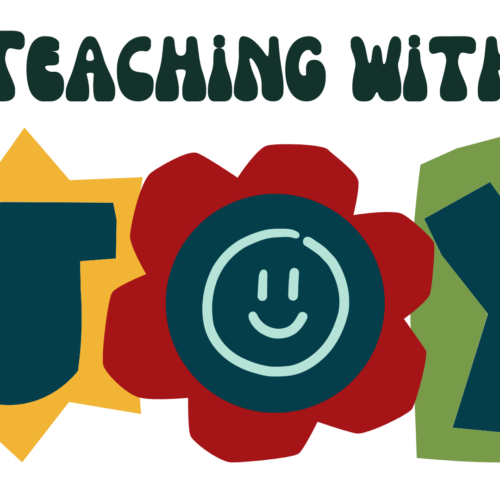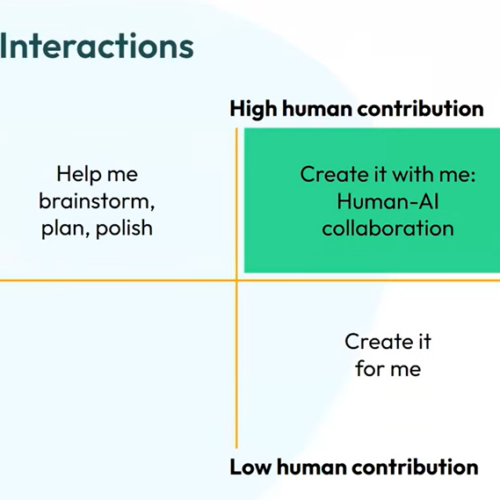
Life Be Lifin’: A Case For Compassionate Pedagogy
Lorien Carter, Professor of Practice in the Brown School, recently shared the following teaching tip with her colleagues in the Brown School. It draws upon A Pedagogy of Kindness by Catherine Denial, which is this semester’s book in the CTL’s Faculty Reading Community.
I’m trying something new this semester: being kind and compassionate. Well, it’s not really new, I am generally known as a caring and empathic human. But this semester, I’m leaning into compassion in a different way. I’m intentionally embedding compassionate pedagogy strategies into my classes.
Compassionate pedagogy in higher education is about creating and sustaining a learning environment where students feel seen, supported, and valued not only as learners but as human beings. In the context of all that is happening around us and to us, it seems particularly important and timely to honor our humanity.
By fostering trust, validating student struggles, embracing diverse needs of learners, and modeling empathy, we can help our students navigate their academic journey with greater confidence and resilience.
For this semester (and beyond) I want to show up in my classroom as someone who uses a pedagogy of kindness. This approach, attributed to Catherine Denial, includes many strategies, ranging from making intentional connections with students, to offering student choice in course design or assignment elements, to modeling empathy, to building in flexibility in course components and assignments deadlines.
I can point to examples of how I’ve used most of these over the years and I know that many of you can too. These are just good teaching practices! For me, that flexibility one has been the hardest to integrate.
Why? Because we often experience teaching as a transactional model. We give students knowledge and in return, they give us a paper that demonstrates that they have that knowledge. If they can’t submit that paper by the deadline, they lose points. Why? Because we’re preparing students for the professional world, which is transactional, thank you capitalism (see this think piece for a deeper connection between capitalism and higher education).
I know I’m not alone in explaining to students that my rationale for rigid deadlines is because in the “real world”, deadlines matter. Of course they do…AND, I have missed a bunch of deadlines this year. In every situation where I had to explain that I couldn’t meet the deliverable within the original time frame, I’ve been met with grace and kindness. In most of those situations, it was possible to extend the deadline, but not always. I lost a consulting project because the organization needed to move their process forward. Even then, I was met with empathy and understanding.
If I’m truly committed to preparing students for their professional lives (which I am), I need to model being a kind human.
Enter: my new Life Be Lifin’ (LBL) policy. This is a policy for late assignments that takes into consideration the many life events that can impact a student’s ability to submit high quality products by deadlines. Under this LBL policy, students are allotted a total of 24 additional hours to be used for late submission of any of the individually graded assignments. This is a no-excuse needed; no-advanced notification needed option. All of my Canvas assignment portals will remain open for 24 hours beyond the due date and time. Students can upload their assignment up to 24 hours late and I will grade it without a late penalty. It is the student’s responsibility to use the time stamp in Canvas to keep track of their LBL bank of hours. As an example, if a student submits their first assignment 12 hours after the deadline, they have 12 hours remaining in their LBL bank for submitting other assignments after the due date, if they submit it 2 hours late, they will have 22 more hours to use if needed for a future assignment.
As has always been my policy, when students are facing difficult circumstances that require more than a short extension, I work individually with them to offer longer extensions or other supports.
This flexible deadline approach has strong evidence in support of student learning experiences. Undergraduate students in this 2023 study reported that the proactive extension policy enabled them to improve the quality of their work and to better manage their academic workloads, acting as self-regulated learners. They also frequently described reduced stress as a benefit. Similar findings occurred in graduate and professional programs with no-penalty extensions, in fact, this model may be even more important for our students, given the significant number of other factors that adult learners experience.
My students haven’t submitted their first assignments yet so I can’t report on how they’re using the LBL policy but when we discussed it on the first day of class, they said they appreciated it, especially because it doesn’t come with any hoops for them to jump through.
Want a deeper dive into the approaches and benefits of a pedagogy of kindness?
- Pedagogy of Kindness – 2020: Learning Together – 10 minute video by Jeff Janowick, History Faculty at Lansing Community College
- Pedagogy of Kindness – 1 hour webinar by Catherine Denial
Happy teaching!
Lorien Carter, MSW is Professor of Practice (Social Work) and Director of Instructional Coaching and Faculty Training at the Brown School. She is also an Office of the Provost Faculty Fellow in Inclusive Pedagogies and Equitable Learning, as well as Chair of the CTL’s Faculty Advisory Board. Lorien co-facilitates the Creating Equitable & Inclusive Learning Environments (CEILE) program.
The image of multi-colored open umbrellas at the top of the page comes from the cover of Pedagogy of Kindness.





